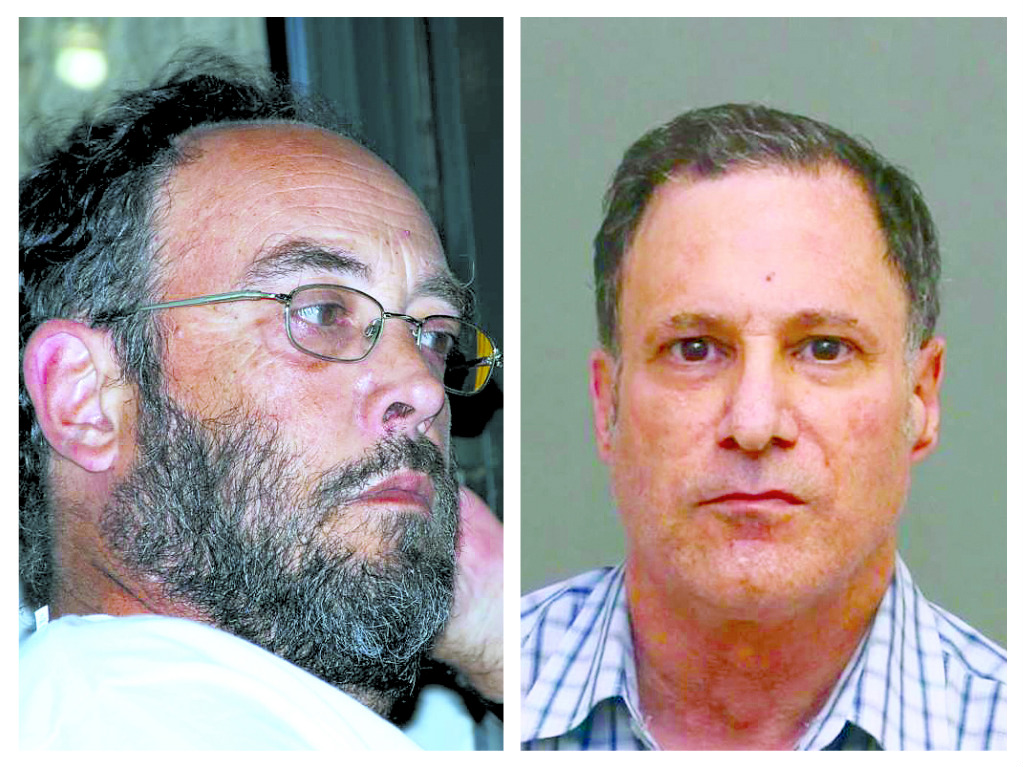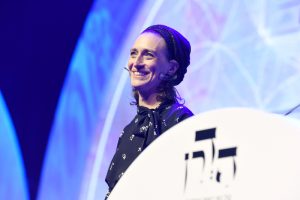In the last few weeks, two men currently and formerly living in Toronto’s Jewish community have been arrested and charged with crimes of a sexual nature.
Stephen Joseph Schacter, who taught at Eitz Chaim Schools between 1986 and 2004 as well as at United Synagogue Day School (now Robbins Hebrew Academy) from 2004 to 2006, was charged with one count of gross indecency, one count of sexual interference, one count of sexual exploitation and two counts of sexual assault. This follows upon his arrest in December 2015, when he was charged with possession of child pornography.
Meanwhile, David Prashker, the former director of Leo Baeck School, was arrested in California in February and charged with possession and distribution of child pornography. In 2008, Prashker resigned from Leo Baeck after it was discovered that he had authored violent and sexually explicit poetry and posted it online.
These two individuals have worked with minors in the Jewish community. And yet, there has not been a community-wide response to these charges and allegations thus far.

I would like to propose some suggestions as to how our community and the heads of its institutions can respond when sexual abuse is uncovered, as well as offer measures we can take to prevent abuse. These suggestions go hand-in-hand with supporting the reporting of abuse to police and co-operating fully with all investigations. (Full disclosure: three weeks ago I was hired, along with my colleague Dr. Shira Berkovits, by Eitz Chaim Schools as an independent consultant to assess its current child protection and safety policies. We will be making recommendations and assisting in their implementation.)
The first step is admitting that abuse occurs in our communities, institutions and schools and that it is sometimes committed by those we trust – our teachers and our leaders.
The next step is for each and every institution to ensure that they know and fulfil their legal and moral obligations regarding disclosures about abuse, and that they embrace both accountability and transparency. These values should be the foundation for the community safety and protection policies each institution should develop and implement, followed by the training of those who work within their walls. Institutions should not wait until abuse has occurred for this step to be implemented, but should instead take more proactive steps to protect those they serve.
For example, aside from assessing the physical environment of each building and ensuring that appropriate hiring and screening practices are used, they should have policies that encompass the following areas: behavioural guidelines for students and staff and the implementation of reporting, investigation and intervention protocols for when abuse arises. Guidelines for how to address historic cases of sexual abuse should be established as well because this is the specific area where the Jewish community is failing.
READ: SPOUSAL ABUSE VICTIM USES EXPERIENCE TO HELP OTHERS
On their own, however, new policies are not sufficient. They need to be developed with an understanding of the ways in which the culture and structure of our community organizations, institutions and norms have allowed abuse to occur and persist.
When abuse arises, instead of ignoring this information or even attempting to cover it up, heads of institutions should come out strongly against the perpetrator and in support of the victims. Rather than think about their institution’s reputation or about corporate values, such as how it will be affected financially if the abuse becomes public knowledge, leaders and board members should acknowledge the abuse and take appropriate action. Failing to do so can undermine their reputation and the values they claim to stand for, as well as erode public trust and respect.
Additionally, a meaningful apology, prayer service or restorative justice meeting with victims can be offered, as can paying for therapy for those who have been impacted by the abuse. These gestures would demonstrate that we practice what we preach when it comes to tshuvah, repentance, and that our sincere desire is to make amends.
Finally, since abuse is about more than just the perpetrator and victims, the entire community must be engaged in change. We need to empower people to ask questions and intervene when they see something amiss as well as educate them about having empathy for the victims. Unfortunately, empathy is often misguidedly gifted to perpetrators in these cases because of our relationships with them and because we often do not know who the victims are, making it difficult for us to identify with them.
In my research, I have found that there are those who believe that sexual predators are drawn to religious institutions because these are places of trust, while others feel that the careless attitude that these institutions have toward abuse helps develop predators. It can very well be a combination of both, in which pedophiles know they will be able to hide in a religious institution that has a habit of ignoring sex crimes.
Some have suggested that religious institutions are only safer now than in the past because they have been repeatedly sued and shamed by victims who have been brave enough to come forward. Whether or not this is true, it does not have to be this way. Moreover, there is a self-interest at play for institutions to implement the above recommendations. An organization that properly reports abuse and appropriately takes care of its problems is more likely to be trusted in the future than one that tries to hide it. Administrators and boards, therefore, have a vested interest in putting appropriate policies in place, beyond the moral and Jewish imperative.
Our institutions and their leaders can take the steps to both prevent abuse and make lasting changes to the way they respond to abuse – steps that go beyond simply protecting reputations. It is only through the involvement of everyone in our communities that abuse will become an issue we fight against, rather than one that is ignored.
Guila Benchimol is a PhD candidate in sociological criminology at the University of Guelph. Her dissertation focuses on sexual abuse in the Jewish community. She is a research assistant at the Centre for the Study of Social and Legal Responses to Violence and a Wexner graduate fellow. She has her masters in criminology and criminal justice policy and was a Jewish educator in Toronto for 10 years. Benchimol is a consultant for Jewish institutions on their community safety and protection policies.


